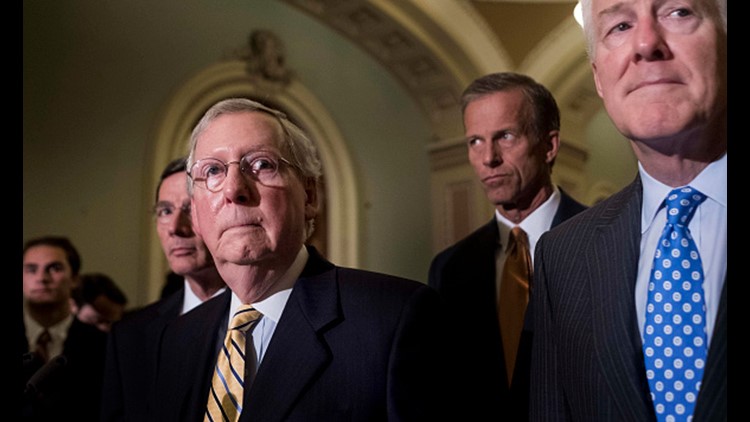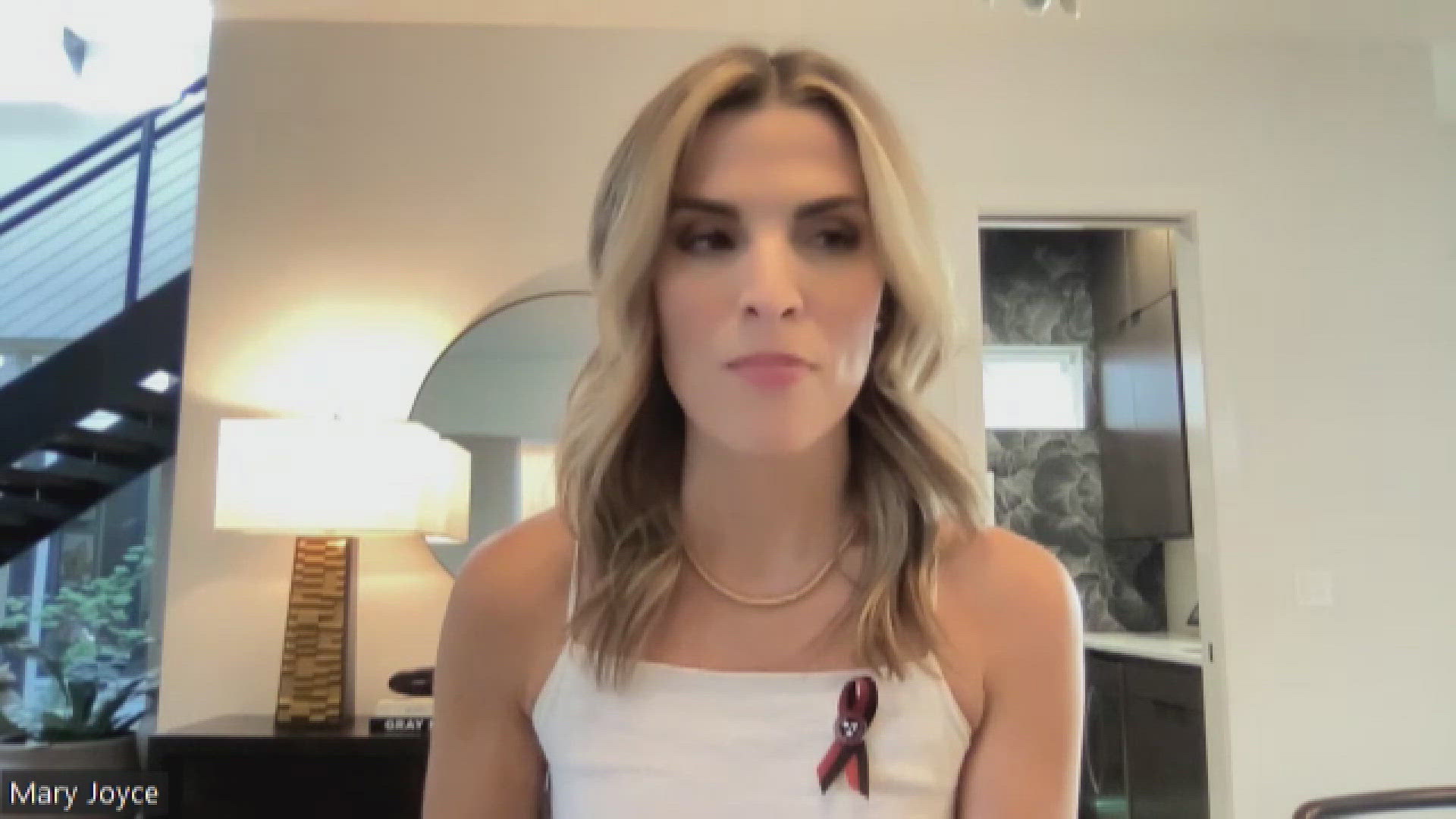The Senate voted Wednesday to defeat a bill that would have repealed Obamacare within two years without any immediate plan to replace the sweeping health care law.
Senators voted 45-55 in favor of the bill, falling six votes short of the 51 needed to pass it. Seven Republicans voted against it: John McCain of Arizona, Dean Heller of Nevada, Susan Collins of Maine, Rob Portman of Ohio, Lamar Alexander of Tennessee, Lisa Murkowski of Alaska and Shelley Moore Capito of West Virginia.
The vote comes on the second day of a 20-hour Senate debate on health care as Republican leaders scramble to win enough votes from their own members to pass something to replace the Affordable Care Act. The Senate began its session Wednesday morning with about 17 hours left in the debate.
Here's a look at where things stand now:
What are they voting on today?
The big vote so far was the failed attempt to pass the amendment by Sen. Rand Paul, R-Ky., to repeal the Affordable Care Act within two years, which would have given lawmakers time to come up with a replacement plan before the law expired. The proposal is the same as one passed by Congress in 2015, which was vetoed by former president Barack Obama. Collins is the only Republican senator who voted against the bill both times.
With a Republican president in the White House, GOP leaders tried again. Paul and other conservatives have led the push for a complete repeal of Obamacare. But there has been a lot of hesitation among Republicans for "repeal" without a plan for "replace."
What have they already voted on?
On Tuesday, senators voted 50-50 to begin debate on a health care bill. Vice President Pence had to come to the Senate chamber to break the tie and allow debate to start.
After that, the biggest news came Tuesday night when senators defeated a Republican bill, on a vote of 43-57, to replace Obamacare. Nine Republican senators voted against the legislation, which was drafted by Senate Republican leaders.
It included a proposal by Sen. Ted Cruz, R-Texas, to allow insurers to sell bare-bones health care plans that don't cover maternity care and other major benefits as long as the companies also sell plans that include a full range of benefits.
The defeated plan also included a proposal by Sen. Rob Portman, R-Ohio, to provide $100 billion in aid to help low-income Americans pay their medical bills after they lose Medicaid coverage as a result of the Senate health care bill.
What are Democrats doing?
The Democrats have been voting against the Republican bills to repeal and replace Obamacare. They also are using procedural tactics to try to slow down the debate process.
For example, Sen. Joe Donnelly, D-Ind., will offer a motion Wednesday to send health care legislation back to the Finance Committee for consideration. On Tuesday, they objected to the usual Senate practice of waiving the reading of the bill, so Senate clerks had to spend several hours reading the leadership replacement bill aloud.
What happens after the 20 hours of debate are over?
A vote-a-rama will begin on dozens of amendments offered by senators of both parties. That is expected to start Thursday.
Do Republican Senate leaders have an endgame?
With the defeat of the comprehensive replacement bill and the "clean" repeal bill, GOP leaders are now looking to pass a "skinny repeal" bill that would make limited changes to Obamacare. It would likely strip out the law's tax on medical devices and its requirements for individuals to buy health insurance and large employers to provide coverage for their workers.
If that plan passes the Senate, it would most likely go to a conference committee of House and Senate negotiators who would try to work out a final compromise.
Democrats say Senate leaders just want to pass anything they can take to this conference committee, where the real bill would be crafted.
"It's becoming clearer that, in the end, the majority leader might push a much scaled-back version of repeal in the hopes of passing something, so-called skinny repeal, just to get to conference," Minority Leader Chuck Schumer, D-N.Y., said in a speech on the Senate floor Wednesday. "But my colleagues, make no mistake about it, skinny repeal is equal to full repeal. It's a Trojan horse designed to get the House and Senate into conference where the hard-right flank of the Republican Caucus, the (House) Freedom Caucus, will demand full repeal or something very close to it."
Why has it been so difficult for the Senate to reach agreement?
Republican leaders have been trying to please the conservative and moderate wings of their party, and they have so far failed to win the support of both groups.
Conservatives generally want a complete repeal of Obamacare's taxes and regulations while moderates worry that ending the law's Medicaid expansion will leave struggling Americans with no way to afford medical coverage.
"Ultimately, we want to get legislation to finally end the failed Obamacare status quo through Congress and to the president’s desk for his signature," Majority Leader Mitch McConnell, R-Ky., said Wednesday in a speech on the Senate floor. "This certainly won’t be easy. Hardly anything in this process has been."



